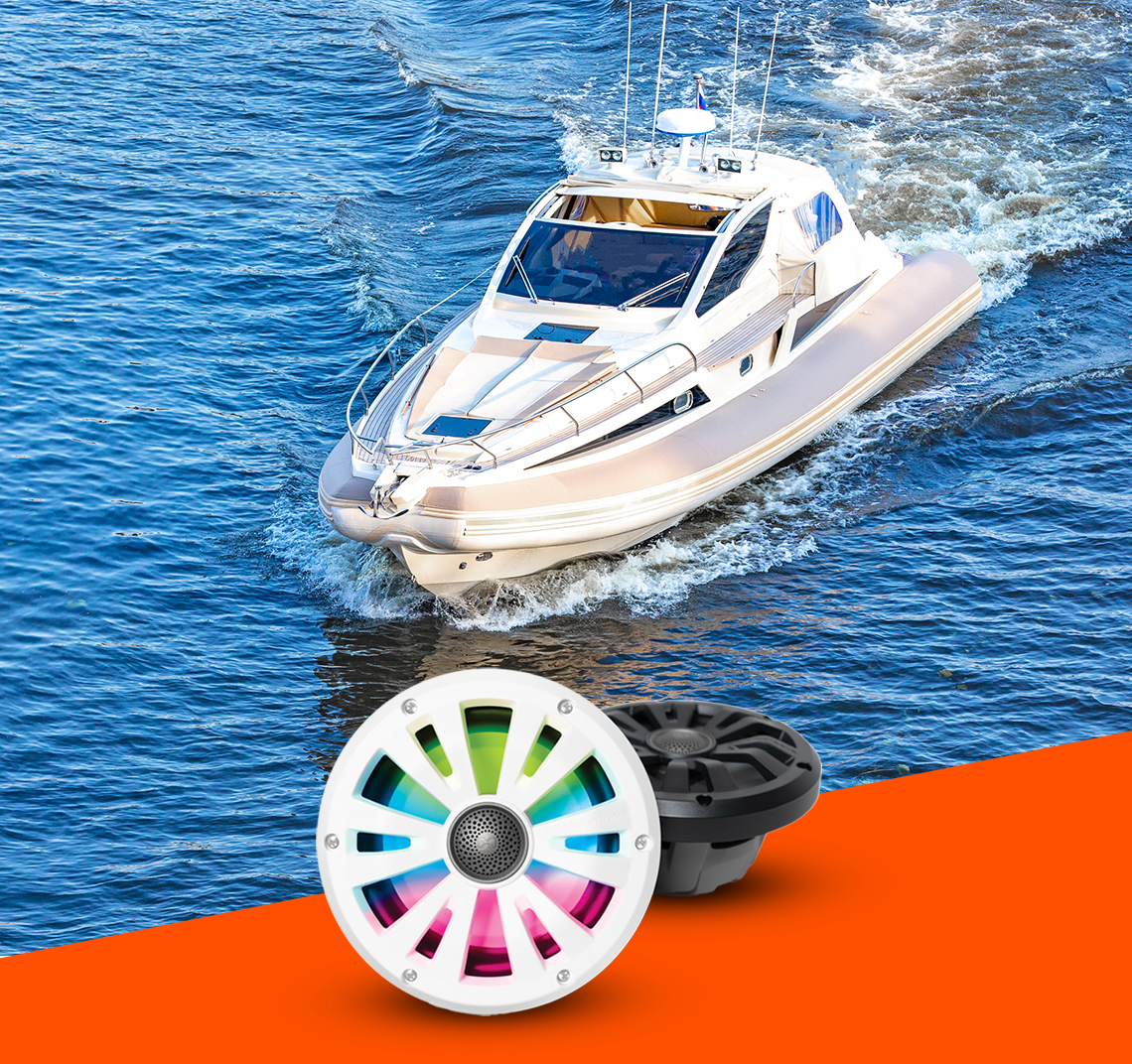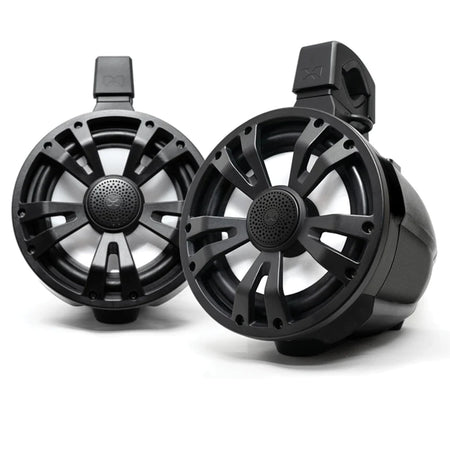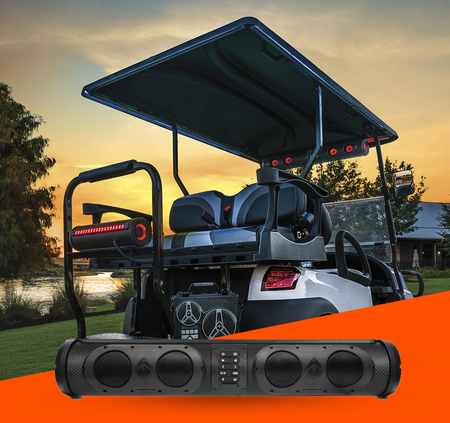Kunihisa, company.com
How to Choose the Right Marine Audio Equipment for Your Boat

Imagine you’re cruising across the water with the sun on your face, breeze in your hair, and your favourite tunes playing loud and clear. Sounds like the dream, right? That’s the power of great marine audio equipment. Whether you're out for a quick fishing trip, entertaining mates, or soaking up the serenity, good audio can make a brilliant day on the water even better.
Truth be told, the ocean (and even the river) isn’t exactly kind to electronics. Between salty air, splashy waves, and blazing sun, your gear cops a fair bit. That’s why it’s super important to choose marine sound equipment that’s built to handle life on board. In this guide, we’ll show you exactly what to look for so you don’t blow your budget on something that fizzles out after a season.
How do I understand my boat and usage needs to choose the right equipment?
First things first, what kind of boat are you rocking? A compact runabout doesn’t need a full concert setup, but if you’ve got a bigger vessel like a cruiser or yacht, you’ll want something that really fills the space with sound.
Also, think about where you usually head out. Saltwater spots around Australia’s coastline can be brutal on electronics, so marine-grade gear is an absolute must. If you’re more of a freshwater boatie, you’ve got a bit more wiggle room, but don’t skip on weatherproofing altogether.
And how often are you out there? If it’s once every few months, a simple setup might do. But if you’re on the water every weekend with family or mates, it’s worth getting a system that can go the distance. Plus, it doesn’t hurt to consider what kind of music you love and how loud you want it. Some like it mellow; others want a party playlist that shakes the deck.
What key features should I look for in marine sound equipment?
This is where it gets exciting! Marine audio equipment is built for fun and function. Make sure the gear you choose is waterproof, like properly waterproof, not just splash-resistant. Look out for words like “marine-grade” and IPX ratings. If it says IPX5 or higher, you’re in the safe zone.
UV protection is another biggie. Aussie sun can fade and crack plastic faster than you can say “shrimp on the barbie.” You’ll also want speakers with corrosion-resistant materials, especially if you’re near the ocean.
Let’s talk sound. You don’t need the loudest system out there, but you do want clear audio that can cut through wind, water, and engine noise. Check the wattage and make sure it suits the size of your boat.
Bluetooth is essential these days, but some systems also come with USB, AUX, or even GPS integration. And don’t forget about how you’ll control it. Waterproof remotes or smartphone apps are super handy when you're not stuck at the helm.
What types of marine audio equipment are available, and how do I choose?
So many options! But don’t stress, we’ll break it down. Marine speakers are the heart of the system. Coaxial speakers are all-in-one units that are easy to install and great for most boats. Component speakers give you better sound quality but need a bit more effort to set up.
The stereo head unit is the brain of the operation. Go for one that’s easy to use and lets you control everything from music to volume zones. If you want that extra kick, consider adding an amplifier. It helps deliver louder, clearer sound, especially on larger boats.
Want to feel the bass while you’re anchored in the bay? A marine subwoofer can give your sound some serious depth. And don’t forget the little things: antennas, mounting kits, and wiring harnesses can make all the difference in your setup.
How do I match marine sound equipment to my budget?
You don’t need to break the bank to get good sound on the water. For casual outings, there are plenty of affordable marine audio options that’ll get the job done, perfect for smaller boats and chill days.
Got a bit more to spend? Mid-range setups offer better materials, higher power, and fancier features like smartphone integration and multi-zone control. Ideal if you're out every other weekend and want a bit more punch.
If you’re all in on marine life and love your music crisp and powerful, high-end systems are where it’s at. Think premium sound, total weatherproofing, and all the bells and whistles. Great for larger vessels or anyone wanting to turn their boat into a floating party.
Should I install marine audio equipment myself or get a professional?
DIY or professional install, it depends on your confidence and tools. Doing it yourself can save you a few bucks and gives you a chance to learn more about your boat. But if you’re not handy with wiring or drilling, things can go pear-shaped fast.
Pros know how to seal everything properly, avoid wiring nightmares, and make sure your system doesn’t drain the battery in the middle of your trip. They’ll also help with speaker placement so your sound isn’t bouncing around weirdly.
If you’re going all out on your setup, professional installation is a smart move. You’ll get the best performance and probably save yourself a headache.
How do I maintain and care for marine audio systems?
A bit of TLC goes a long way with marine audio equipment. Rinse off salty residue after each trip with a damp cloth (no need to soak it). Don’t use harsh cleaners; they can wreck seals and finishes.
Before putting your boat away for the season, disconnect the system or cover it up. Store detachable gear somewhere dry, and give everything a good once-over before heading out again.
If you’re hearing crackles or drops in sound, it could be corrosion in the wires or moisture sneaking in. Check connections, clean terminals, and make sure your system’s still sealed up tight.
Which marine audio brands are reliable, and where can I buy them in Australia?
You’ve got some great options locally. Fusion is a go-to brand for many Aussie boaties, built tough for life at sea. JL Audio and Rockford Fosgate are also big names that combine solid performance with rugged designs.
You’ll find marine sound equipment at retailers like BCF, Whitworths, and Outback Marine. Online shops often have good deals too; just make sure you’re buying genuine gear with a solid warranty and local support.
Picking the right marine audio equipment is more important than you think
At the end of the day, marine sound equipment, such as marine speakers, isn’t just about blasting bangers; it’s about making every trip more enjoyable, whether you're cruising solo or with a full crew. The right setup keeps the good vibes rolling and ensures your gear lasts season after season, no matter what the weather throws at it.
So go on, upgrade your setup, crank up the volume, and enjoy every second out on the water.
FAQs
Can I use regular car audio equipment on my boat?
No, regular car audio gear isn’t designed to handle moisture, UV rays, or salt spray. It will likely fail quickly in a marine environment.
What does IPX rating mean for marine audio equipment?
The IPX rating tells you how waterproof a product is. Higher numbers, like IPX7, mean better protection against water exposure.
Does speaker placement really affect sound quality on a boat?
Yes, poor placement can cause uneven sound, dead zones, or echo. Mount speakers at ear level and avoid obstructed areas.
Related articles
- Author: Hype Analytics
Upgrading your vehicle’s audio system for outdoor adventures is exciting, but it c...
- Author: Hype Analytics
Across Australia, more and more 4x4 owners are upgrading their audio systems to ma...


